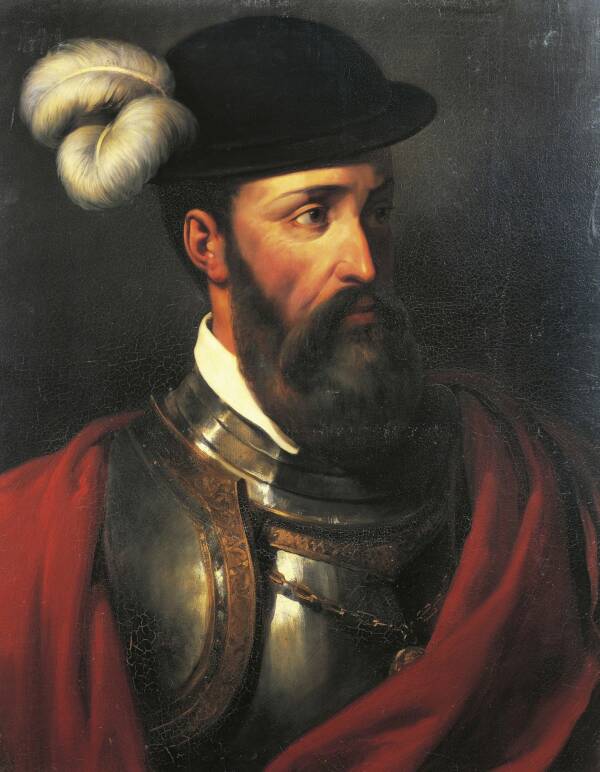What happened on this day in history: Francisco Pizarro is assassinated, same-sex marriage becomes legal in the United States, and more historical events that happened on June 26th.
1541: Francisco Pizarro Is Assassinated

Public DomainConquistador Francisco Pizarro in an 1835 painting.
Francisco Pizarro is killed in Lima, Peru, by supporters of his partner-turned-rival Diego de Almagro. Pizarro, a Spanish conquistador, and Almagro, his fellow soldier, both claimed rights to the Peruvian city of Cusco, and Pizarro had him murdered. Almagro’s supporters then killed Pizarro in revenge.
1807: A Gunpowder Factory Kills 300 In Luxembourg
Lightning strikes a gunpowder factory in Kirchberg, Luxembourg. The strike triggered an explosion that razed two blocks and killed more than 300 people. It’s believed to be one of the deadliest lightning strikes in history.
1945: The United Nations Charter Is Signed
The charter of the United Nations is signed in San Francisco, California, by delegates from 50 nations. The founding document of the organization, the charter sought to save “succeeding generations from the scourge of war” by maintaining peace, prompting progress, and encouraging the expansion of human rights. Today, the U.N. has 193 member states.
1997: Israel Kamakawiwo’ole Dies

Universal MusicIsrael Kamakawiwo’ole was renowned for his rendition of “Somewhere Over the Rainbow” that was released in 1993.
Israel Kamakawiwo’ole dies in Honolulu, Hawaii at the age of 38 of respiratory failure. The singer, who famously sang a soul-stirring rendition of “Somewhere Over The Rainbow,” had long suffered from health problems because of his size and weighed around 1,000 pounds when he died.
2015: Same-Sex Marriage Becomes Legal In The U.S.
The Supreme Court announces its decision in Obergefell v. Hodges, declaring that bans on same-sex marriages and bans on recognizing same-sex marriages were unconstitutional. The case originated with a gay couple named Jim Obergefell and John Arthur, whose marriage was recognized in Maryland but not in Ohio. The Supreme Court decision effectively made same-sex marriage legal in all 50 states.



